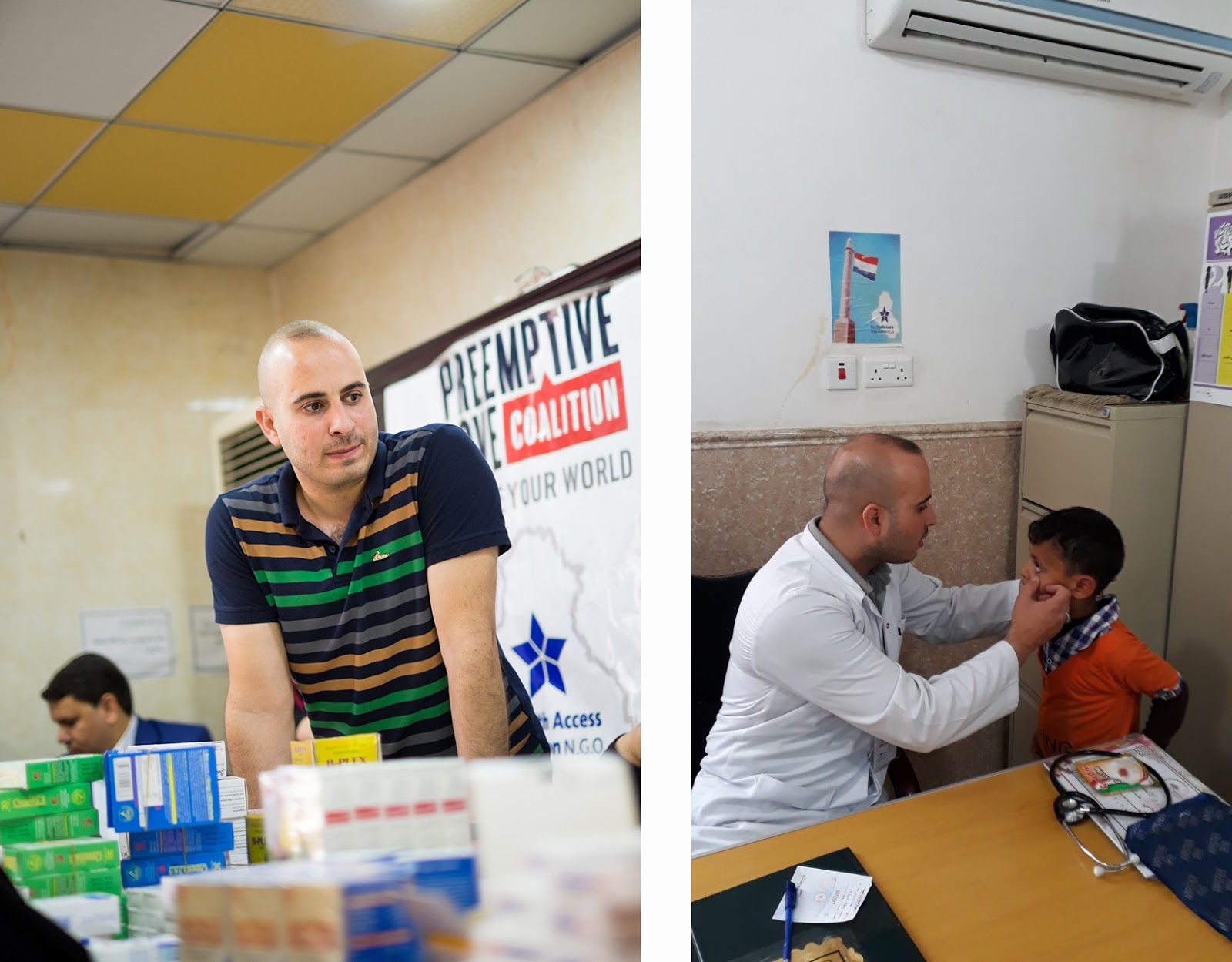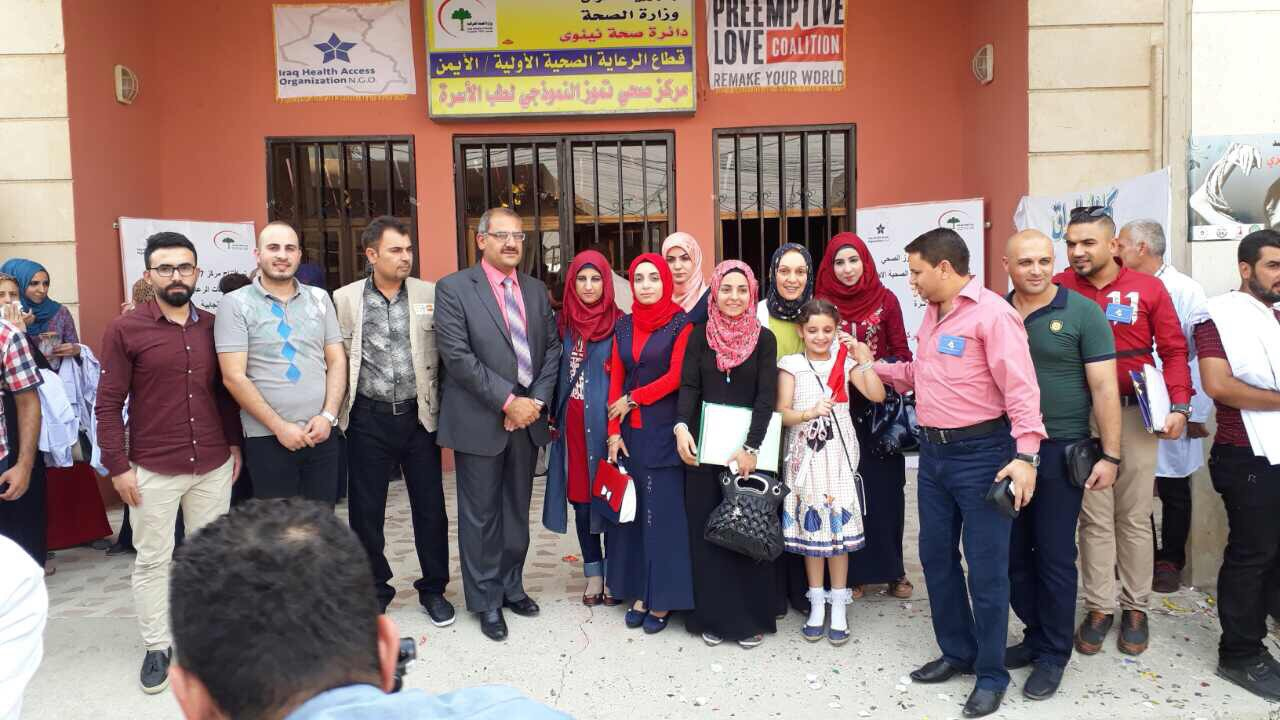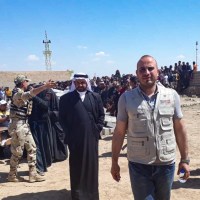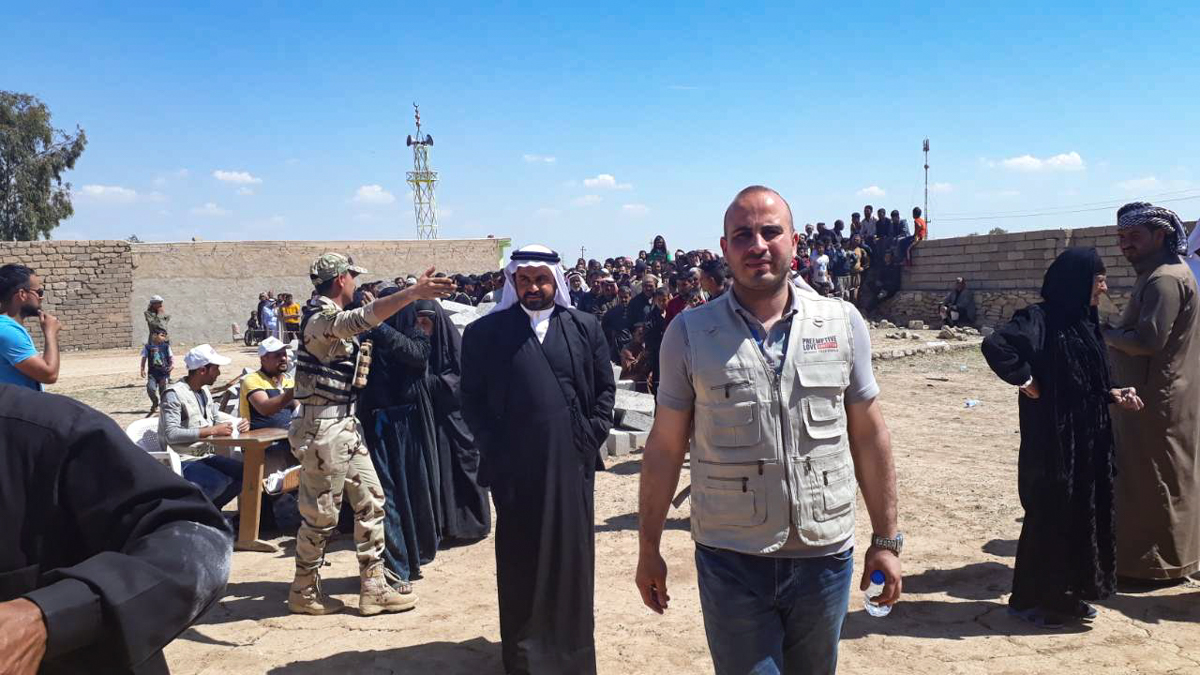Dr. Ahmad and I sit in a cafe, three floors above the vibrant Mosul street that runs past the university. We haven’t seen each other in a while, so after asking about his family, we plunge into conversation.
“Scabies, lots of cases. And lice. Head lice.”
The doctor catches me up on the cases he sees most often in Mosul’s hospitals and clinics.
“Mumps…two months ago, thirty cases. In one month.” Dr. Ahmed reminds me of how mumps is spread—via saliva. He mentions an outbreak of chickenpox.
I’m struck both by how utterly ordinary, yet extraordinary, this conversation is.
Dr. Ahmad lived in the city of Mosul through its occupation by ISIS. He practiced medicine at Mosul General Hospital under ISIS—under the constant threat of death.
“You were here the whole time?” I ask. 
“Well, I couldn’t go out of Mosul. I was here when ISIS entered the city.
“We didn’t… we didn’t think about the future—and how long they’d stay in Mosul. We thought about one month… three months. And then the bridge [and] the road was closed.
“By the time you realized what this was, it was too late.”
At the hospital, he continues, “anyone who laughed, or didn’t work good—they took him and killed him. In front of their staff. Very difficult days.
“When I remember it, I am… very sad.”
It’s a devastating thing to see your city–—the city of your ancestors—occupied. It was hard for Dr. Ahmad’s father, a retired military man, to see an occupying force strip his city of life and dignity.
It was hard for Ahmad’s wife, who was given such a difficult time at checkpoints, even when she was covered head-to-toe in the required loose black garments, that she stayed home through the entire occupation for her safety.
When Mosul was finally liberated, Ahmad’s family had been living in their basement for 10 days. Bombs rained on their neighbourhood, and the basement was the safest spot they could find.
“When we were liberated, the army kicked the door of my house. We didn’t know the army had come.”
Dr. Ahmad pauses to laugh. “‘Come, we are the army! Come, we are the army!’ they shouted,” he laughs again.

They didn’t believe the voices at first. Even when Ahmed moved his car away from blocking their front gate, pulled open the door, and stood face-to-face with a federal police officer, he still couldn’t believe it.
Then he looked down the street and saw the dead ISIS fighters. He described their injuries to me with the kind of precision you would expect from a doctor.
It was then he knew they were finally free.
ISIS wasn’t the first occupying force to bring violence to Mosul in Ahmad’s lifetime, though. He described what it was like to live in Mosul in 2004, when US forces occupied the city. Car bombs and missile strikes to a nearby military facility blew out the windows of their home every three to six months. Bullets lodged in the walls of their home.
For Dr. Ahmad and his remaining neighbours, the year since liberation from ISIS is the longest stretch of peace they’ve seen in 14 years.

You could hardly blame Dr. Ahmad if he spent his free time resting, playing with his kids, planting flowers, reading. But he doesn’t.
When he’s not on duty as a doctor, Ahmad invests his life in rebuilding Mosul.
Dr. Ahmad is a health project manager with our local partners at IHAO. He helped manage the opening of nine primary health centers and one hospital that you support in Mosul and the surrounding area. These health centers are still running—and he continues to oversee them.
Dr. Ahmad has been involved with relief aid and hygiene kit distributions, and he manages special projects like the recent wheelchair distribution. And when work is the best kind of medicine for patients in his area, he sets them up with small businesses and coaches them through the difficult early days.
Dr. Ahmad is using this time of peace to rebuild his community in every way he can.
There is still so much destruction in Mosul, but if you follow Dr. Ahmad around for a day, you will see so much that is being healed.


